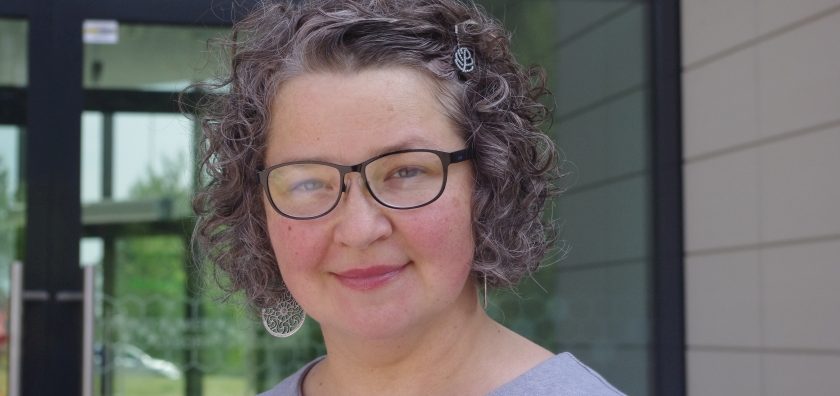Naujienos

30 balandžio, 2019
Sveikiname
Doktorantūra
Neringą Kurapkaitienę (Edukologijos ir socialinio darbo institutas), 2019 m. gegužės 24 d. apgynusią disertaciją „Jaunų suaugusiųjų mokymosi savanorystėje patirtys“ (edukologija, S 007).
JAUNŲ SUAUGUSIŲJŲ MOKYMOSI SAVANORYSTĖJE PATIRTYS
Disertaciniame darbe siekta ištirti ir aprašyti jaunų suaugusiųjų mokymosi savanorystėje fenomeną išgirstant ir analizuojant tyrimo dalyvių patyrimą. Tyrimo metodologija pasirinkta Interpretacinę fenomenologinė analizė (Smith ir kt., 2009) ir tyrime atliktas pusiau struktūruotas interviu. Tyrimo duomenys atskleidė mokymosi savanorystėje procesą skiriant visa dėmesį tyrimo dalyvių patyrimui. Mokymosi procesas savanorių išgyvenamas esant pasitikėjimo santykiui su Kitu, kai tampama dialogo „Aš Ir – Tu“ dalimi. Pasitikėjimo santykis savanorių kuriamas su laisvai pasirenkamu autoritetu, kurio dėka net ir pačios sunkiausios savanorystės patirtys yra suvokiamos ir įprasminamos. Pasitikėjimo santykio dėka tyrimo dalyviai galėjo kiekvieną kartą vis iš naujo padėti Kitam ir tuo pačiu sau, išgyvenančiam egzistencines krizes. Nerandant autoriteto ir nepatiriant pasitikėjimo ir pripažinimo santykio, mokymasis savanorystėje tampa neįmanomu, nes pagalba netenka prasmės. Pasitikėjimo santykio stokojant savanorystės patyrimas pateko į egzistencinį savanorystės beprasmybės išgyvenimą, kuris taip ir liko už suvokimo ribos. Tyrimo dalyvių patirtys atspindėjo at(si)skyrimo savanorystėje patyrimą, kuris reiškėsi būnant svetimu ir kitokiu. At(si)skyrimo patyrimas vedė tyrimo dalyvius link susitikimo su savimi arba link atskirties, kaip esminės savanorystės patirties patyrimo. Viena vertus at(si)skyrimo patyrimas tarnavo idealizuotam savanorystės paveikslo priartinimui prie realybės per skurdą, ligas, negalias ir pan. Kita vertus at(si)skyrimas neišgyvenant pasitikėjimo ir pripažinimo santykio uždarė savanorius ilgalaikėje atskirtyje. Mokymasis savanorystėje patiriamas sąmoningai ir nesąmoningai, siekiant tobulėti ir atrasti kažką naujo apie save ir kitus bei nesiekiant nieko atrasti. Tyrimo dalyviai patekę į savanorystės patyrimą vieni sąmoningai to siekdami, kiti atsitiktinai pateko ir į mokymosi patyrimą, kuris vedė link įvairiapusio ir daugiasluoksnio savęs, Kito ir pasaulio kitoniško suvokimo.
LEARNING EXPERIENCE FROM VOLUNTEERING OF YOUNG ADULTS
The aim of doctoral Thesis was to investigate and describe the phenomenon of young adults learning in volunteering by listening and analyzing the experience of the research participants. In the research was chosen for Interpretative phenomenological analysis methodology (Smith et al., 2009) and for investigation was implemented semistructured interview. The research data revealed the process of learning in volunteering, according to the experience of the research participants. The learning process is experienced by volunteers in trustful relationship with the Other when relation becomes a part of the "I - Thou" dialogue. Trustful relationship volunteers created with a freely chosen authority, that makes even the most difficult experiences in volunteering understandable and meaningful. Because of trustful relationship, young adults were able to help the Other constantly and at the same time to survive the existential crises. Without authority and without trustful and recognition based relationship, learning in volunteering becomes impossible and help loses its meaning. In the absence of a trustful, recognition based relationship with a the chosen authority - pushed into the experience of meaningless existence, which, for the young adult, remained as an incomprehensible experience. The experience of the research participants revealed isolation experience in volunteering, which was occurring by being different and stranger. The experience of isolation has led young adults to a meeting with themselves or towards exclusion as an essential experience of volunteering. On the one hand, isolation experience served to bring the idealized image of volunteering closer to the reality through poverty, illness, disability, and so on. On the other hand, isolation of a volunteer without trustful and recognition based relationship closed volunteers in the long-term exclusion. Learning from volunteering is fulfilled deliberately and unconsciously, while trying/or not trying to give a meaning to the experience. The perspective of learning from volunteering opens up through a paradigm of learning from experience, holistic learning, transformative learning, and perceptual learning. Research participants deliberately and/or unconsciously experienced learning in volunteering, that led them to a multi-faceted and multi-layered understanding of themselves, of the Other and of th